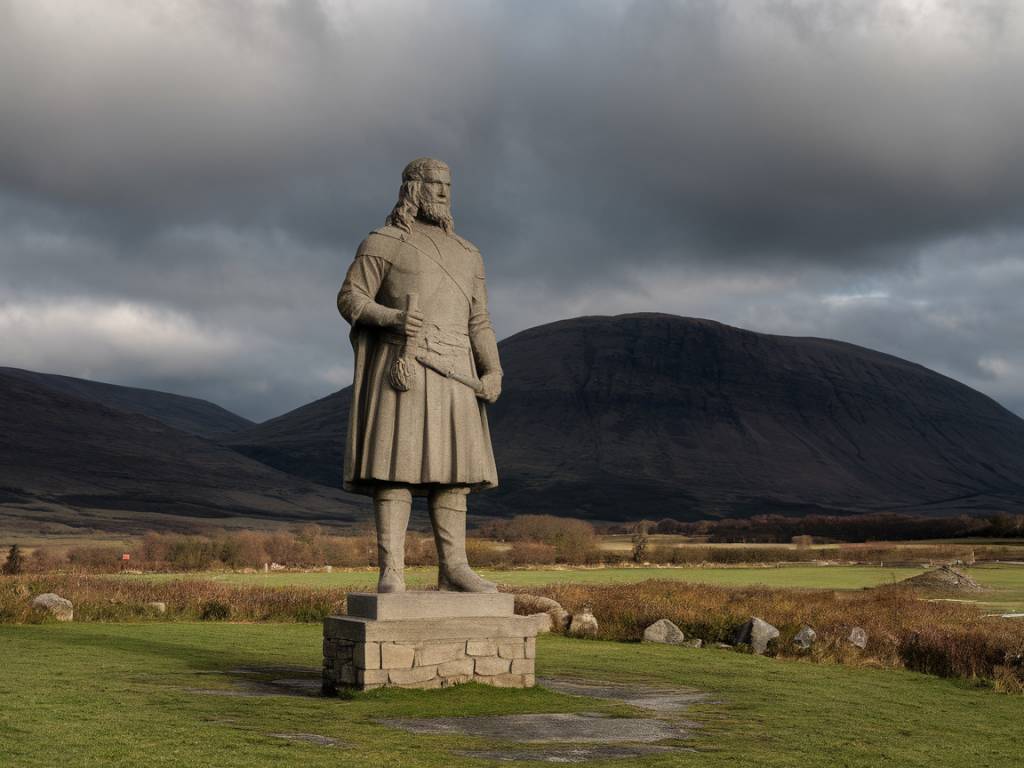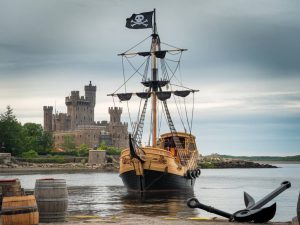Legendary Welsh heroes and their cultural legacy

Legendary Welsh heroes and their cultural legacy
The Legendary Welsh Heroes Who Shaped a Nation
Wales is a land of myths, legends, and extraordinary heroes whose stories have shaped its cultural identity. From the shadowy figures of ancient folklore to historical figures of immense influence, Wales boasts a heritage rich in captivating tales. But what makes Welsh heroes so unique, and how do their legacies continue to influence our lives today? Let’s dive into the lives and legends of some of Wales’ most iconic historical and mythical figures, and reflect on the extraordinary cultural imprints they’ve left behind.
Owain Glyndŵr: The Rebel Prince
Few names resonate as deeply in Welsh history as Owain Glyndŵr. Often referred to as the « last Prince of Wales, » he led a daring revolt against English rule in the early 15th century. Far more than a mere political rebel, Glyndŵr became the embodiment of Welsh resistance and hope for independence. Legend has it that he could summon storms to aid his cause, further cementing his mythical status.
Owain’s vision included not just political autonomy but also cultural pride. He championed the creation of a Welsh parliament and universities, concepts centuries ahead of their time. To this day, his banner—a golden dragon on a scarlet field—remains a potent symbol of Welsh defiance and strength. Next time you see the Glyndŵr flag fluttering in the wind, you’re witnessing a piece of living history.
King Arthur: The Once and Future King
While King Arthur is immortalized around the world, many people don’t know that his origins are deeply tied to Wales. According to early Welsh texts like the Mabinogion, Arthur was not just a charismatic king but a heroic leader battling monstrous creatures and defending his realm.
Sites like Bardsey Island and the Preseli Hills are steeped in Arthurian lore, lending a mystical aura to these Welsh landscapes. But Arthur’s legacy transcends geography—it’s his ideals of courage, loyalty, and justice that continue to inspire. Is it any wonder that his legend has endured for more than a millennium?
Rhiannon: Goddess and Storyteller
In Welsh mythology, few figures are as enigmatic or resonant as Rhiannon. A central character in the Mabinogion, Rhiannon represents strength, independence, and a keen wit. She survives false accusations, trials of endurance, and otherworldly challenges, emerging as a figure of resilience and grace.
Rhiannon’s influence extends beyond mythology. Her symbolic associations with horses, the moon, and wisdom have become recurring motifs in literature and art. And in daily life, many Welsh women draw inspiration from her unyielding determination and sharp intellect. Could she be considered one of the earliest feminist icons? You decide.
St David: Patron Saint and National Icon
No exploration of Welsh heroes would be complete without mentioning St David, the patron saint of Wales. Born in the 6th century, David was a monastic leader known for his ascetic lifestyle and powerful sermons. His teachings emphasized kindness, humility, and the importance of small, meaningful actions—values that resonate universally.
March 1st, St David’s Day, is a nationwide celebration of Welsh culture, filled with parades, daffodils, and traditional foods like cawl (a hearty soup). It’s a day to reflect on not just St David’s spiritual legacy, but also the communal pride and unity he continues to inspire. And really, who can resist a leek-wearing dragon mascot?
Lady Llŷn: Guardian of the Bardic Tradition
While less well-known internationally, Lady Llŷn holds a special place in the hearts of those who cherish Wales’ bardic traditions. According to legend, she was a patron of poets and musicians, fostering a golden era of artistic creativity. Her support helped preserve the art of storytelling during times of political and social challenges.
Even today, her cultural legacy is reflected in Eisteddfod—a celebration of Welsh literature, music, and performance. If you’ve ever attended an Eisteddfod festival, you’ve experienced the enduring spirit of Lady Llŷn herself. It’s a tradition that speaks to the soul of Wales, celebrating its rich oral and written traditions in a world increasingly dominated by digital media.
The Cultural Ripple Effect
What unites these heroes—real, mythical, or somewhere in between—is their profound connection to Wales’ cultural identity. They embody qualities that are as relevant today as they were in centuries past: resilience, creativity, and an enduring love of community. Their stories invite us to look inward and ask ourselves: what does it mean to embrace heritage in a rapidly changing world?
When you visit Wales, you’re not just admiring picturesque landscapes; you’re walking in the footsteps of legends. From castle ruins echoing Owain Glyndŵr’s call for freedom to misty hilltops blessed with Arthurian magic, Wales offers a tangible connection to its heroes. The past here isn’t just preserved; it’s alive, waiting for you to explore it.
Fueling the Future of Welsh Legends
At the heart of these stories is a reminder that history, culture, and identity are never static. Wales’ legendary heroes live on not just in books or museums but in the people who tell their stories, the festivals that honor them, and the traditions that continue to evolve in their name.
So, as you savor a bowl of warm cawl or watch the sunset over Snowdonia, take a moment to raise a metaphorical glass to the giants of Wales’ past. They are not just heroes from history—they are living symbols of what makes Wales unique, grounded in heritage but always looking forward.





